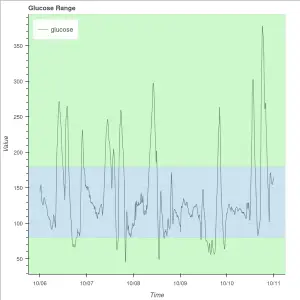Paul Romer is the embodiment of academic success. And in 2018 he came under the global spotlight by winning the Nobel Prize for Economics for his contributions to the understanding of long-term economic growth and its relation to technological innovation.
He was the Chief Economist and Senior Vice President of the World Bank and professor of economics at NYU, the University of Chicago, the University of California, Berkeley, Stanford University and the University of Rochester.
That’s why it made news when he praised Python and Jupyter Notebook in a long article saying all kind of nice things about the open source programming language and browser based development environment.
It’s often not a good idea to bet against a Nobel prize winner and also in this case it’s hard to disagree with any of the points he made about Python and Jupyter especially since Paul Romer’s Nobel prize was about technological innovation’s relation with long-term economic growth.

Here are 10 points parallel to what he wrote about Python and Jupyter:
- Open Source dominates.
Unlike Mathematica, Matlab and Excel, Jupyter and Python are open source programs. It means you can see exactly what’s under the hood anytime you’d like. It’s all open source and out there for the public to view, review, examine, admire and get inspired by. This is a very different story than proprietary software which is a black box with no sneak peak.“It is along this social dimension that open source unambiguously dominates the proprietary model. Moreover, at a time when trust and truth are in retreat, the social dimension is the one that matters.”
Transparency over secrecy.
Professor Romer suggests in his post that: “Jupyter rewards transparency; Mathematica rationalizes secrecy. Jupyter encourages individual integrity; Mathematica lets individuals hide behind corporate evasion. Jupyter exemplifies the social systems that emerged from the Scientific Revolution and the Enlightenment, systems that make it possible for people to cooperate by committing to objective truth; Mathematica exemplifies the horde of new Vandals whose pursuit of private gain threatens a far greater pubic loss–the collapse of social systems that took centuries to build.”
Strong words indeed.Easy to use.
He goes on: “It [Jupyter] offers the best REPL I’ve ever used. It lets me get quick feedback, via text or graphics, about what happens when I select a line of code and run it.”
This sums up the amazing convenience of Jupyter in research and education very nicely.Excellent Libraries
This one should be obvious, Python has some of the best -and most abundant- libraries in the programming world: “Python libraries let me replicate everything I wanted to do with Mathematica: Matplotlib for graphics, SymPy for symbolic math, NumPy and SciPy for numerical calculations, Pandas for data, and NLTK for natural language processing.”Awesome Community.
“I’m more productive. I’m having fun. On both counts, it helps to be able to get an honest answer when I have a question.”
- Open Source dominates.
You can read his original April 2018 blog post here.

Inspirational Quotes by Paul Romer
- Every generation has underestimated the potential for finding new ideas . . . Possibilities do not add up. They multiply.
- Growth springs from better recipes, not just from more cooking.
- Human material existence is limited by ideas, not stuff, people don’t need copper wires they need ways to communicate, oil was a contaminant, then it became a fuel
- Never waste a crisis.




